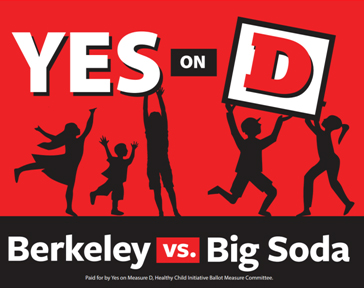A symbolic victory for anti-sugar campaigners
Voters in both San Francisco and the neighbouring university town Berkeley went to the polls on 4 November 2014 to decide whether they wanted a tax on their Cokes, Pepsis and other sugary soft drinks. San Francisco’s proposition would have added USD 0.02 per ounce on sugar drinks such as sodas, energy drinks, iced tea and juices, while Berkeley’s scheme asked for a USD 0.01 levy or USD 0.20 per can.
In the end, Berkeley’s voters scored an overwhelming victory in favour of the tax, whereas San Francisco’s voters defeated the proposition.
Supporters hope the tax will influence consumers’ soda consumption habits much the same way the tax on cigarettes ultimately decreased smoking.
Since no U.S. city has adopted a soda tax yet, it is not known how it will affect beverage sales. But evidence from Mexico, where a similar tax was instituted in January this year, shows that sales of high-calorie beverages have dropped and the consumption of low-calorie beverages and water has increased.
U.S. media reported that the beverage industry has spent more than USD 9 million (EUR 7.2 million) to defeat the San Francisco and Berkeley initiatives. In Berkeley alone, the American Beverage Association and its members have spent at least USD 2.1 million, or about USD 27 (EUR 22) per eligible voter, to fight this ballot measure.
So far, the USD 76 billion beverage industry, which has been struggling with declining sales, has managed to prevent sugar taxes. In the past four years, 30 bills to levy or raise taxes on sugary drinks have failed thanks to big money ad campaigns funded by various groups, it was reported. In New York City, the state’s high court this summer struck down the city’s ban on super-sized sodas.
However, to some tax supporters, even the debate around the issue is a win.

